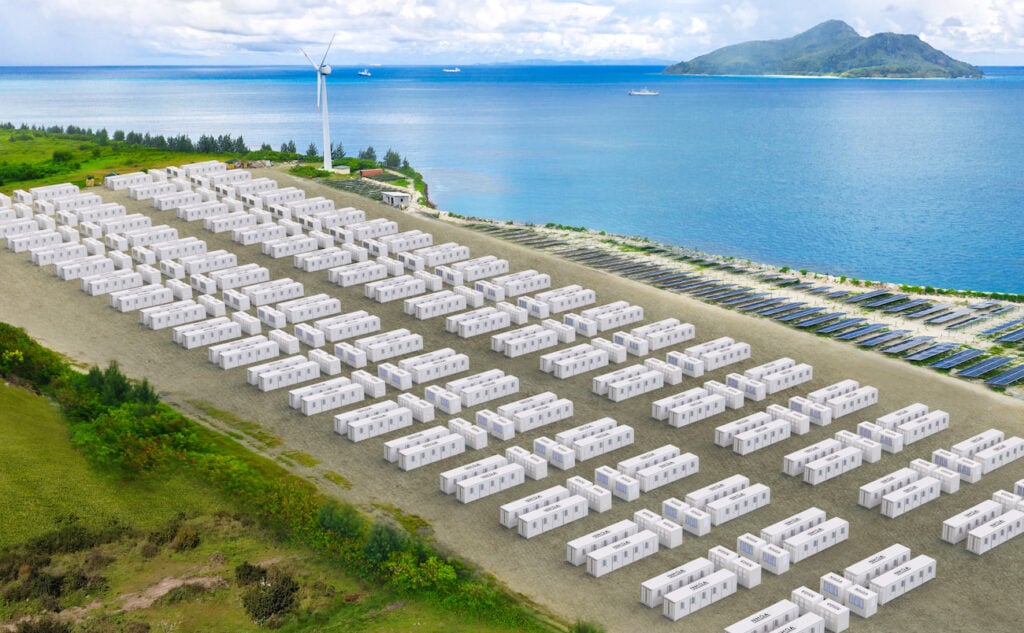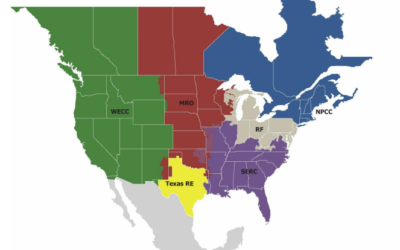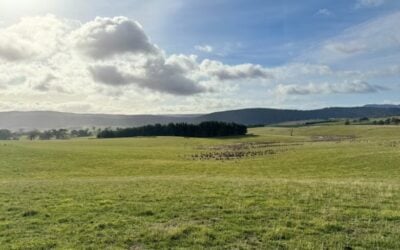
Taiwan’s renewable energy goals will only be made possible with the deployment of energy storage equivalent to 20% of new installed renewable energy capacity, according to the chairman of Taiwan Cement Corporation (TCC).
TCC chairman Nelson Chang gave a speech at the company’s annual general meeting (AGM) earlier this week in which he said the company sees energy storage – and specifically batteries – as “the key to the future of energy”.
Enjoy 12 months of exclusive analysis
- Regular insight and analysis of the industry’s biggest developments
- In-depth interviews with the industry’s leading figures
- Annual digital subscription to the PV Tech Power journal
- Discounts on Solar Media’s portfolio of events, in-person and virtual
Taiwan’s government has planned for renewable energy capacity on the East Asian island to reach 27GW by 2025 and 45GW by 2030 and TCC believes that for this to be integrated and used efficiently and effectively, more than 5GW of energy storage will be needed by 2025 and more than 9GW by 2030.
This matters to TCC, a major cement producer and supplier for Mainland China, because the company is pivoting its business towards a more circular economy model. With cement demand decreasing, TCC is moving more of its efforts towards two key areas: waste treatment and the energy industry.
In reporting Q1 2022 financial results this week, TCC noted that cement revenue from Mainland China decreased 7.8% year-on-year, while sales volume decreased 24.1% and the rising price of coal squeezed the company’s margin and profits.
Nonetheless, its investment into the energy business is paying off. The company has acquired NHOA (formerly Engie EPS), which is active in large-scale energy storage systems (ESS) and electric mobility solutions and has other related subsidiaries such as its own ESS provider in Taiwan, TCC Energy Storage and a battery maker, E-One Moli.
Consolidated revenue for the quarter was NT$22.97 billion (US$0.78 billion), up 4% from Q1 2021, and the company attributed the growth as being mainly thanks to its new energy business.
Two-thirds of TCC’s profits over the past two years have been ploughed into its waste treatment and energy businesses, which Chang said is also key to the company’s move to targeted carbon neutrality.
Company pursuing upstream and downstream battery opportunities
TCC expects to surpass 400MWh of energy storage installations by the end of this year and more than an estimated 2,900MWh by 2024. Chang noted that NHOA is active in 26 countries and that its projects include the world’s biggest vehicle-to-grid (V2G) project to date, in Italy, where NHOA is headquartered.
That site in Turin, developed by NHOA’s e-mobility subsidiary Free2Move, will integrate 600 electric vehicles (EVs) to provide more than 30MW of battery storage. Another NHOA subsidiary is establishing an independent power producer (IPP) business in Southern Europe.
In March, Energy-Storage.news reported that NHOA’s energy storage revenues doubled in 2022 from the previous year. Recent wins include a 200MWh project in Western Australia, although its former parent company Engie cancelled a major solar-plus-storage project in Hawaii a few months ago that NHOA was to supply 240MWh of battery storage to.
TCC’s battery manufacturing arms will arrive at 3.3GWh of annual production capacity by 2024, including E-One Moli’s existing 1.6GWh factory in Taiwan and another subsidiary, Molie Quantum Energy, is building what the TCC chairman described as a “super battery factory” with 1.8GWh annual production capacity also in Taiwan, scheduled for opening early next year.
Taiwan’s battery storage market, kickstarted by tenders for frequency regulation by state-owned utility Taiwan Power Company (Taipower) and underpinned by market drivers including the need for reliable green energy at many industrial facilities, has drawn in a number of enthused international players.
Global system integrator Fluence was recently awarded a 60MW / 96MWh project by Taipower, Fluence’s second battery energy storage system (BESS) project in Taiwan, while rivals Powin Energy and Wartsila are among others with active projects. NHOA itself is in an agreement to install 420MWh of BESS for TCC at industrial sites on the island.






